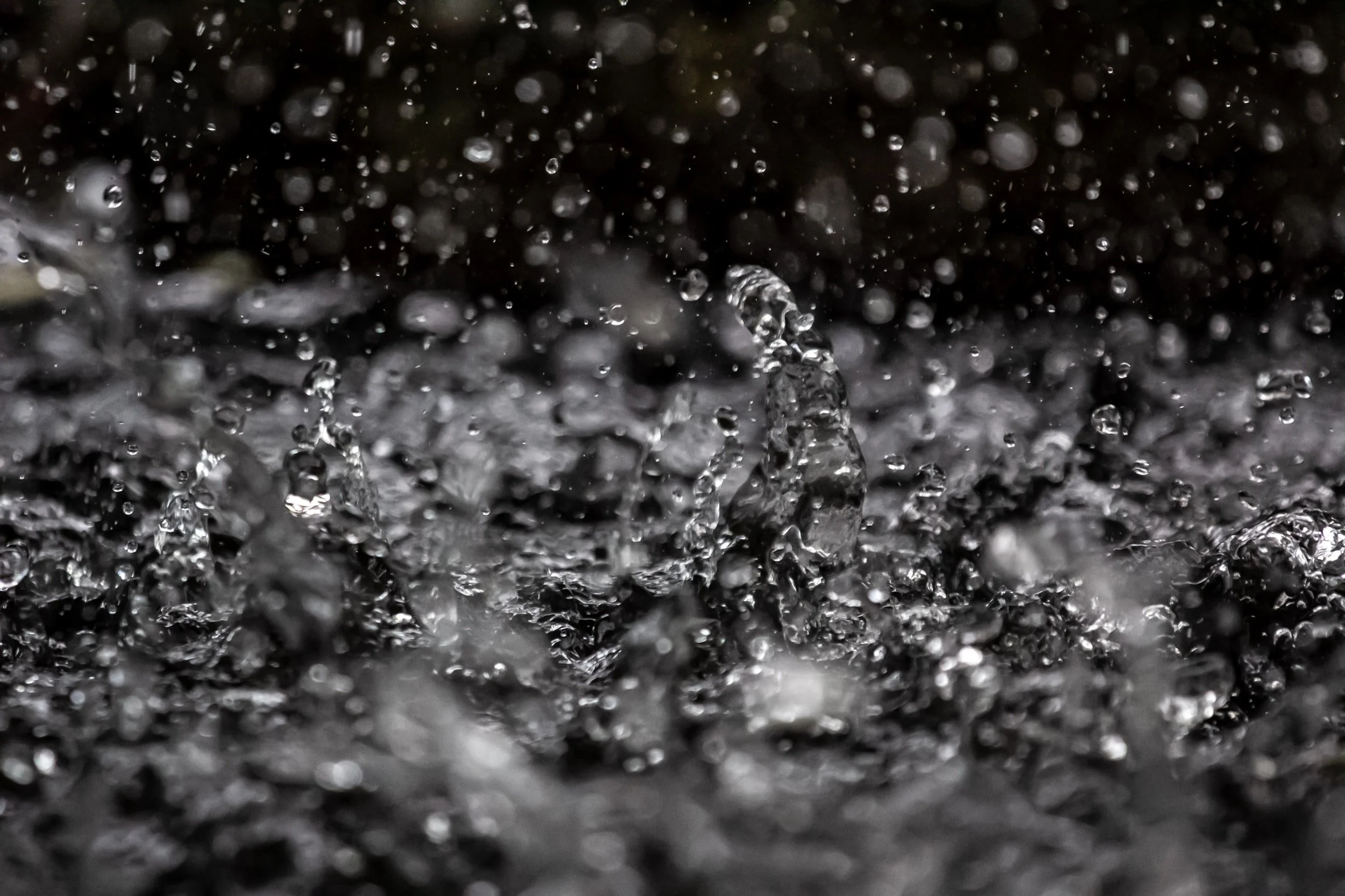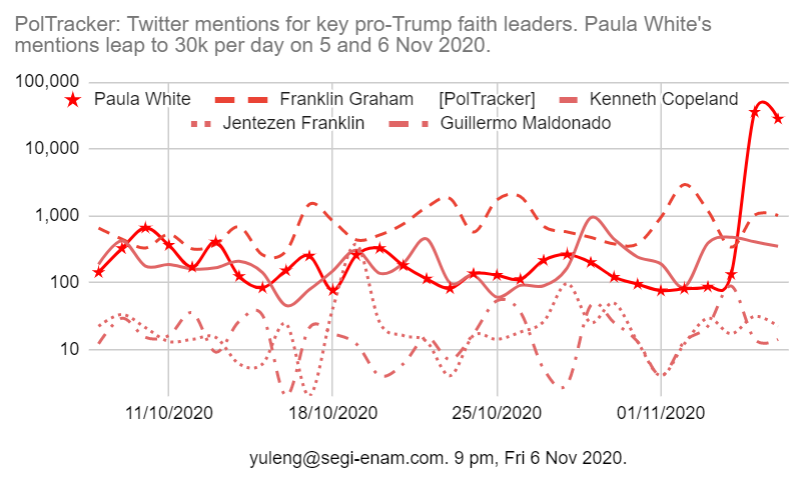The 2020 US elections are finally over, although the horizon seems to promise yet more drama up until Joe Biden’s inauguration early next year. As the world settles into the results, here are some thoughts from our PolTracker team members.
Sharon
The Democrats received 306 votes in the Electoral College. Joe Biden will be the 46th President of the United States of America come 20 January 2021. In over a week since Biden exceeded the 270 threshold requirement to win, Donald Trump has yet to formally concede and he has repeatedly claimed victory via tweets. Trump had also launched a series of lawsuits based on allegations of election fraud. Most courts have thrown out these lawsuits due to lack of evidence. In any case, any recounts or legal challenges are not expected to overturn the overall result. Biden has also the lead in the popular vote that has surpassed five million.
The Republican representatives are divided on the results with some encouraging Trump to continue his challenge while some have openly congratulated Biden on his win.
The problem now lies with the transition, which is crucial for the Biden’s incoming administration to get up to speed on the country’s state of affairs. With Trump’s refusal to concede (which is not required by law but a matter of convention), the normal handover process to the new government has been stalled.
The General Services Administration (GSA), the government agency tasked with beginning the process and is headed by a Trump appointee, has yet to recognise Biden and his running mate Kamala Harris as winners. Hence, the Biden team has not been given access to classified security briefings, federal agencies and funding needed for a smooth transition of power. Despite the roadblocks, Biden has appointed his Chief of Staff and has also assembled a COVID-19 task force to tackle the pandemic.
The electors in the Electoral College are scheduled to meet in the respective states to cast ballots on Dec 14. Once the votes are counted, the electors all sign six certificates of the results. Perhaps then, Trump would have no choice but to face the stark reality that he has lost his presidency.
Nadirah
Compiled by PolTracker
Biden claimed victory on 8 November 2020, about four days after the polling day, with Trump still struggling to (formally) concede defeat. Twitter mentions and sentiment (global) leading up to this show Biden overtaking Trump on both fronts, i.e. Biden received a higher number of mentions which recorded more positive sentiment than his Republican counterpart.
Interestingly, while some Trump voters are seen as racist and the misinformed, the large number of Trump voters is turning discussions to what drives so many Trump voters. One article points out that within the context of an unchanging flawed democratic system, a rationale surfaces: a voter attempts to maximise whatever little stake they have in it. In other words, voters cast their ballots for Trump, “fully cognisant of all his flaws, shortcomings and dangers” and in search of tax breaks and more.
In this article, correspondent Nesrine Malik classified seven types of rational Trump voters. Several notable ones include: 1) high earners, i.e. the top 20%, who obtained a 3% gain in income; 2) entrepreneurs, with a survey revealing that 65% of respondents believed that Trump’s tax regime was the “best thing the government did for companies last year”, and; 3) lower end-workers—in some sectors, such as the shale and gas industry, job creation was directly attributed to Trump thanks to his vocal support.
While many are unwilling to give Trump voters the time of day, being outright hostile might not be the right solution, no matter how cathartic of a solution that may be. As columnist Cathy Young explains, it only “perpetuate[s] the vicious cycle of demonization of which Trump has been both a cause and a symptom”. Trump voters (faith-driven, rational and other), will continue to exist in the Land of the Free—or anywhere else in the world, really—and continuously antagonising them may not be the best plan of action in the long run.
Cyrene
The U.S Election 2020 saw former Vice President Joe Biden winning the presidency against Donald Trump (306 - 232) , the first President to lose a re-election bid since George H.W. Bush in 1992.
Which groups favored Joe Biden or Donald Trump, by gender and race? Based on preliminary exit poll data (updated for 11 November 2020), Biden secured more women votes - by an small (improved) margin of two percentage points, ahead of Hilary Clinton (Note: In 2016, she received one of the “lowest shares of female votes of any Democrat”). This seems a lacklustre improvement in light of who he was running against; and given his (minority) female running mate - Kamala Harris.
Source: Wolf, Merrill, and Wolfe (2020)
A look at the background details of for-Biden (Democrat) women voters revealed that support had slipped among women of color (versus the 2016 election). The Biden Agenda for women has focused on inclusion and equality for women, and especially women of color, in issues like healthcare, economy, education, and national security to ensure that they can exercise their civil rights amidst a pandemic. Therefore, it does come as a surprise when Joe Biden underperforms Hilary Clinton with this group.
Source: Wolf, Merrill, and Wolfe (2020)
Donald Trump on the other hand saw an increase in support from white women (plus two percentage points compared to 2016), despite his rhetorical remarks about women. Alas, for The Donald, he lost support among white men (minus eight percentage points). What went wrong?
Yu Leng
Post US election, there was a mighty relief from the internationalised American (and others!) with whom I’m in touch with via social media. One wrote to me about the urban-rural divide: We can have a situation where Biden has now crossed the 5 million vote lead mark and yet folks doubt the result. Clinton had almost 3 million more votes than Trump and yet the electoral college handed it to the loser of the popular vote. Don't like it.
What caught my eye?
First, yes, city votes matter less. The #LandDoesntVote graphic below, says much about how the electoral system distributes power. It empowers rural votes, much to the frustration of city voters. What’s going on? Have so-called anti-democratic institutions stacked the political systems against urban voters? This is a problem across many other democracies, with the finger often pointed to associations with the first past the post or "winner takes all" British-style electoral system. This delivered a shock of ex-London (well, the London-Oxford-Cambridge triangle) Brexiteers to its own mega city folk on 23 June 2016; and a few months later came Trumps’ 8 November 2016 victory.
Second, voting outcomes. The tendencies and shifts (I’ve started to look at the Associated Press/AP’s VoteCast survey findings, a 3-6 November NPR summary, and The Financial Times’ findings of 8 November). Interestingly, American voters who care most about economic concerns voted Trump, and those who cared about the virus (with huge acute economic concerns!) voted for Biden. Hmm.
What will be done about the urban-rural divide and other underlying economic voting cleavages? Economists and policy makers have not cared enough about distributional impacts, and when will they start to? Economic inequality continues to be fertile ground for political meisters. Are both sides bamboozling voters?
Notable: Geographical polarisation & faith voting.
From the PolTracker team, 17 Nov 2020
DATA LINKS
A pro-exurban electoral system
What I’m earmarking for reading:
Partisan Gerrymandering and the Construction of American Democracy, 2013, Ed. Erik Engstrom, https://www.jstor.org/stable/j.ctt1gk086k
Why Cities Lose: The Deep Roots of the Urban-Rural Political Divide, 2019, Jonathan A. Rodden, https://politicalscience.stanford.edu/publications/why-cities-lose-deep-roots-urban-rural-political-divide
Voting tendencies and trends
Understanding The 2020 Electorate: AP VoteCast Survey, 3 Nov 2020 (and since updated), by NPR
This data comes from AP VoteCast, a survey of the U.S. electorate conducted over several days before Nov. 3, continuing until the polls close. The data includes interviews with more than 110,000 people across the U.S. It has a margin of error of plus or minus 0.4 percentage points for voters. It is an alternative to traditional exit polls.
Note: EXTENSIVE VOTE DETAILS. Source: AP VoteCast, based on interviews with 110,485 likely voters and have been adjusted to reflect preliminary vote totals as of 10 a.m. ET on Nov. 6. The margin of error is 0.4 percentage points.
Also, read our note on faith leaders and the Trump 2020 vote
AP VoteCast is a nationwide survey of more than 133,000 voters and nonvoters conducted for The Associated Press by NORC at the University of Chicago. Excerpts from, the article, AP VoteCast: Trump, Biden coalitions show race, class divide, 5 Nov 2020:
Despite a once-in-a-century pandemic and a weakened economy…. 76% of U.S. voters said they knew all along who they would support (the bulk of supporters for both presidential candidates)... two-thirds of all voters said their decision was about Trump — either for or against.
Biden amassed a sizable and diverse coalition of young, women, college-educated, urban and Black voters, groups that powered his party’s 2018 midterm victories. Some 38% of his support came from voters of color.
Trump, meanwhile, marshaled his overwhelmingly white and rural supporters to turn out voters in the places that anchored his victory four years ago. He held on to 62% of white voters without a college degree, despite Biden’s hopes of peeling off large numbers of them. And in some competitive states, like Nevada and Florida, Trump ate away at Biden’s support among Latinos.
Turnout for both parties appeared to be strong as voters expressed anxiety about the country’s future. Six in 10 voters — including most Biden voters and about a quarter of Trump voters — said the nation was on the wrong track.
Nearly three-quarters of U.S. voters were white and 55% of them backed Trump. The president secured 81% of white evangelical Christians. About half of men voted for him. Trump won 60% of voters living in small towns and rural areas.
Nationwide, nearly 57% of college graduates backed Biden. So did 55% of women. And 55% of voters under the age of 45. He won 65% of urban voters and 54% of suburbanites.
By numbers: how the US voted in 2020, 8 Nov 2020, Financial Times
From FT.com about the voter shifts 2016-2020
From FT.com about political polarisation


















